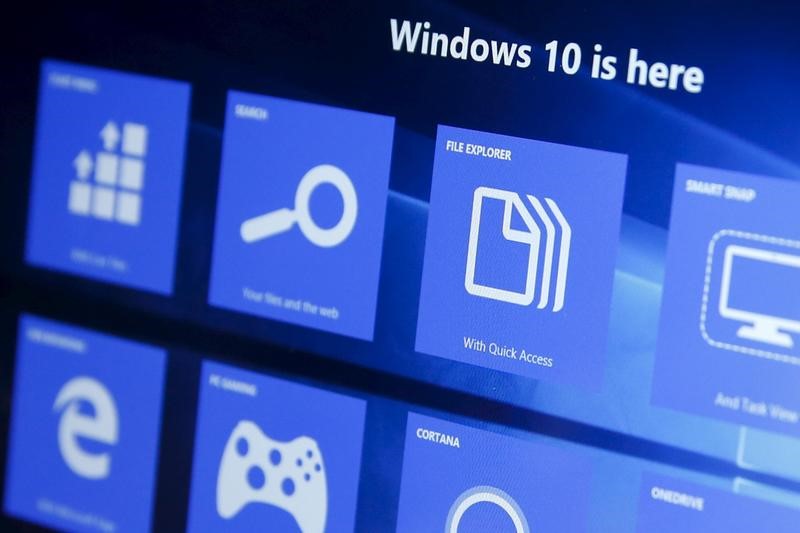Investing
Sanctioned China stocks win sudden boost from patriotic buyers

© Reuters. FILE PHOTO: A woman walks past a panel displaying stock indices of Hong Kong, U.S. and China markets, outside a bank in Hong Kong June 7, 2016. REUTERS/Bobby Yip
By Samuel Shen and Tom Westbrook
SHANGHAI/SINGAPORE (Reuters) – The trademark Chinese patriotism is back at play in markets. As Japan and the United States place fresh curbs on Chinese technology firms, local investors are scooping up shares of those firms and state companies, and reaping handsome rewards.
China has for years been guiding money into its innovative companies, but investors sensed an urgency for technology independence this week after the United States threatened to sanction chip maker Changxin Memory Technologies (CXMT), and Japan published rules to restrict semiconductor exports to China.
“We must choose to stand with our country … and make long-term asset allocation in line with the country’s needs,” Liu Tuoqi, head of investment at Shanghai Zhangying Investment Management Co, told investors in a roadshow, describing the Sino-U.S. conflict as “irreconcilable”.
But there’s a silver lining in the tech spat, he added. “It forces us to make chips ourselves … the higher the wind and waves, the pricier the fish.”
Indeed, share prices of leading Chinese makers of semiconductor equipment have jumped since end-March, when Japan said it would restrict exports of 23 types of chipmaking equipment. Stocks such as NAURA Technology Group, up 14%, Piotech Inc up 45%, and ACM Research (NASDAQ:) Shanghai Inc up 19%, have led the way.
Japan this week finalised export control rules, effective on July 23, joining the U.S. in a push to curb China’s ability to make advanced chips.
U.S. politicians’ calls this week to sanction CXMT following Beijing’s ban on U.S. chipmaker Micron Technology (NASDAQ:) also boosted shares in Chinese memory chipmakers such as ZBIT Semiconductor Inc, up 26% this week, and Montage Technology Co, up 4%.
The nationalistic fervour boosting these select sectors and shares has also been lucrative for investors in an environment of sluggish and uneven domestic growth after China’s economic reopening in January. China’s benchmark stock indexes rallied in anticipation of a bumper post-pandemic recovery but have erased all gains since.
Brokerage Citic Securities said that U.S. and Japanese curbs against China’s chipmaking industry will only accelerate Chinese efforts to replace foreign technology and invite stronger government support.
LUMBERING STATE FIRMS REVALUED
Reflecting the flag-waving fervour, at least eight asset managers have applied to China’s securities regulator to launch the first batch of investment products tracking the CSI Computing Infrastructure Index, seen as the most vulnerable to foreign sanctions, and a vital area in the tech war.
New fund launches will potentially channel money into China’s technology and chipmaking leaders, including ZTE Corp (HK:), Unisplendour Co, Montage and Cambricon Technologies.
It comes as investors are also being subtly nudged – via favourable brokerage reports and mutual fund launches – to invest in state-owned enterprises (SOEs), which Beijing hopes can play a key role in the Sino-U.S. tech war.
“If we want to realize technology replacement in the future, SOEs are the best platform,” said Yang Zhenjian, fund manager at Bosera Asset Management.
Cutting-edge innovation requires huge and long-term investment, which is beyond the ability of private companies, “but SOEs can do it,” Yang said.
To facilitate SOE fundraising, Chinese regulators have since late last year called for a revaluation of the state sector, boosting shares in U.S.-blacklisted companies such as China Mobile (NYSE:), China Telecom (NYSE:) and China Unicom (NYSE:).
An index tracking innovative central SOEs has jumped 14% this year.
Yuwei, hedge fund manager at Water Wisdom Asset Management, said he is bullish on Chinese chip equipment companies, state-owned telecom giants, and indigenous software makers that challenge U.S. rivals in China.
For example, Kingsoft Office, a Microsoft (NASDAQ:) rival that is being adopted widely by Chinese governments and SOEs, has surged nearly 50% this year.
Liu of Zhangying Investment admitted there’s some froth in certain sectors supported by Beijing. For example, China’s chipmaking sector is now trading at 60 times earnings, compared with 16 for the broad market.
But “China needs high valuation in some sectors … Why don’t you put down your wager, while also supporting the country’s development?”
Read the full article here

-

 Make Money7 days ago
Make Money7 days ago10 Critical Questions to Ask Your Financial Advisor Now
-

 Make Money6 days ago
Make Money6 days ago10 Ways to Make Money As a Graphic Designer
-

 Personal Finance5 days ago
Personal Finance5 days agoIf you are 60 years old, new 401(k) rules could save you money
-

 Investing6 days ago
Investing6 days agoCould Easier Cancellations Build Customer Loyalty?
-

 Investing7 days ago
Investing7 days agoAirbus keeps top spot with 766 jet deliveries in 2024 By Reuters
-

 Investing4 days ago
Investing4 days agoBank regulator gives BlackRock new deadline on bank stakes, Bloomberg reports By Reuters
-

 Passive Income7 days ago
Passive Income7 days agoHow to Build a Solid Go-to-Market Strategy for 2025
-

 Side Hustles6 days ago
Side Hustles6 days agoTrump’s 2025 Inaugural Committee Raises Record $170 Million


















